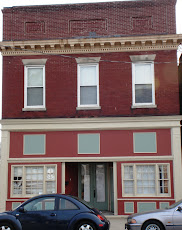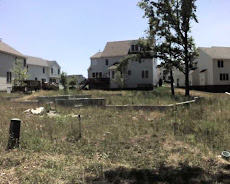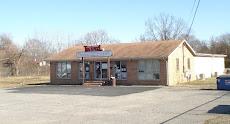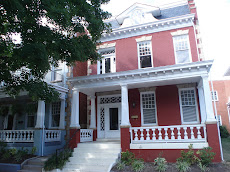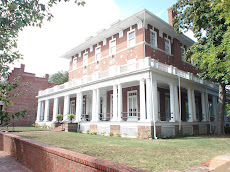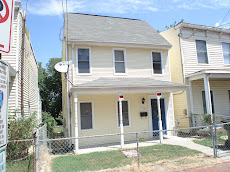Developers who want to turn an industrial plant along Richmond’s Canal Walk into a mixed-use community are one step closer to their goal.
This is a repost of richmond bizsense article dated 10/22/2010
Partners Fountainhead Development and the WVS Companies had requested several changes to restrictive covenants put in place when the Canal Walk was developed in 1994. Those changes have now been endorsed by the executive committee of Venture Richmond, and director Jack Berry said he expects the full board to approve the changes within the month.
“There was unanimous agreement on the part of the developer, the city and Venture Richmond to make some changes in the convents to enhance the Canal Walk,” Berry said.
The developers, who have the six-acre site under contract, sought changes that would allow for taller buildings and some leeway in requirements that mandate pedestrian-oriented uses such as ground-level retail.
With the covenants changed, Fountainhead principal Rick Gregory said, it’s time to focus on financing. The purchase price for the site has not been disclosed.
The developers were granted a Special Use Permit by the city in July (read more here) that allowed for residential uses on the ground level, among other changes to the existing zoning.
Since then, the developers have continued negotiations with Venture Richmond on the covenant changes. The result is something in between what was granted in the SUP and the original covenants.
“There are a lot of different parties who have different agendas, and some people wanted more retail space,” Gregory said. “The point was there is already enough vacant space down there.”
The developers had wanted to use much of the street-level space for office or apartments, citing a lack of demand for retail. For the most part, provisions that require ground-level pedestrian uses such as shops and restaurants were kept intact.
“The requirements for first-floor pedestrian uses were retained and strengthened in certain instances,” Berry, of Venture Richmond, said.
The developer was relieved of this requirement on the first floor of a proposed residential building along the canal, which now will allow for commercial offices instead. The developer had been given permission by the city to place apartments on the ground level if they wanted, but in this case the covenants supersede the zoning.
The developers were also allowed to reduce pedestrian-oriented uses along 11th Street. In other sections, the current requirements were kept intact.
Among the other changes:
- Allow taller buildings in some sections.
- Protect river views from condo units in the Vistas above 70 feet.
- Strengthen and clarify existing covenants relating to architecture.
- Reduce setback from canal in some sections to allow larger building footprints.
Canal walk downtown richmond va; richmond real estate; kerry riley; one south realty group
Friday, October 22, 2010
Thursday, October 21, 2010
Help from federal and state government to reclaim blighted houses in Richmond
A $5 million boost in the battle against blight for Richmond neighborhoods. This is a repost of a richmond bizsense article by Amy David .
House flipping is back, and this time local nonprofits want in on the game.
Richmond’s Neighborhood Stabilization Program recently received $5 million, its third infusion of funds from the Virginia Department of Housing and Community Development. The funds will be used to purchase, renovate and ultimately sell deserted and foreclosed properties in the Church Hill, Barton Heights and Highland Park areas
.
Renovations are underway on 20 properties and are expected to be complete within a few months. The upgraded properties will be sold or rented to people with low incomes.
“Our responsibility is to determine which areas have been impacted the most and rehab them to a livable and sellable state,” said Chris Thompson, program manager for the DHCD.
Funds for the stabilization program are made available through the Housing and Economic Recovery Act of 2008. The federal funding has been distributed to states, which have allocated it to localities to award to housing groups. The federal program is designed to reduce the effects on communities caused by the foreclosure crisis.
Many of the DHCD’s community development programs focus only on lower income households, but Thompson said Richmond’s program will cater to middle class households as well.
“The foreclosure crisis is hitting a broader spectrum of society, and [the stabilization program] can provide assistance to a variety of income groups,” Thompson said.
To date, 21 local government and nonprofit organizations have worked with the program to acquire and renovate foreclosed properties and sell them to potential homeowners. Richmond Metropolitan Habitat for Humanity, Bradley Development LLC, Richmond Redevelopment and Housing Authority and Southside Community Development and Housing Corporationare helping with the current renovations.
“We’ve purchased seven homes that have been foreclosed on,” said Dianna Herdon, executive director for Southside Community Development and Housing Corporation.
The community development nonprofit provides home-ownership education and counseling, home repairs and other financial support services to these first-time home buyers.
“We recently just sold our first home, located at 1805 Grove Avenue,” Herdon said.
About 70 homes have been purchased by grant recipients. Statewide, 35 houses have been sold out of 216 that have been renovated. Grantees design their own programs and funding criteria, but they must use at least a quarter of the funds toward the purchase of the property.
Kerry Riley, richmond real estate, one south realty group, house flipping, homes for sale.
House flipping is back, and this time local nonprofits want in on the game.
Richmond’s Neighborhood Stabilization Program recently received $5 million, its third infusion of funds from the Virginia Department of Housing and Community Development. The funds will be used to purchase, renovate and ultimately sell deserted and foreclosed properties in the Church Hill, Barton Heights and Highland Park areas
.
Renovations are underway on 20 properties and are expected to be complete within a few months. The upgraded properties will be sold or rented to people with low incomes.
“Our responsibility is to determine which areas have been impacted the most and rehab them to a livable and sellable state,” said Chris Thompson, program manager for the DHCD.
Funds for the stabilization program are made available through the Housing and Economic Recovery Act of 2008. The federal funding has been distributed to states, which have allocated it to localities to award to housing groups. The federal program is designed to reduce the effects on communities caused by the foreclosure crisis.
Many of the DHCD’s community development programs focus only on lower income households, but Thompson said Richmond’s program will cater to middle class households as well.
“The foreclosure crisis is hitting a broader spectrum of society, and [the stabilization program] can provide assistance to a variety of income groups,” Thompson said.
To date, 21 local government and nonprofit organizations have worked with the program to acquire and renovate foreclosed properties and sell them to potential homeowners. Richmond Metropolitan Habitat for Humanity, Bradley Development LLC, Richmond Redevelopment and Housing Authority and Southside Community Development and Housing Corporationare helping with the current renovations.
“We’ve purchased seven homes that have been foreclosed on,” said Dianna Herdon, executive director for Southside Community Development and Housing Corporation.
The community development nonprofit provides home-ownership education and counseling, home repairs and other financial support services to these first-time home buyers.
“We recently just sold our first home, located at 1805 Grove Avenue,” Herdon said.
About 70 homes have been purchased by grant recipients. Statewide, 35 houses have been sold out of 216 that have been renovated. Grantees design their own programs and funding criteria, but they must use at least a quarter of the funds toward the purchase of the property.
Kerry Riley, richmond real estate, one south realty group, house flipping, homes for sale.
Subscribe to:
Comments (Atom)

























